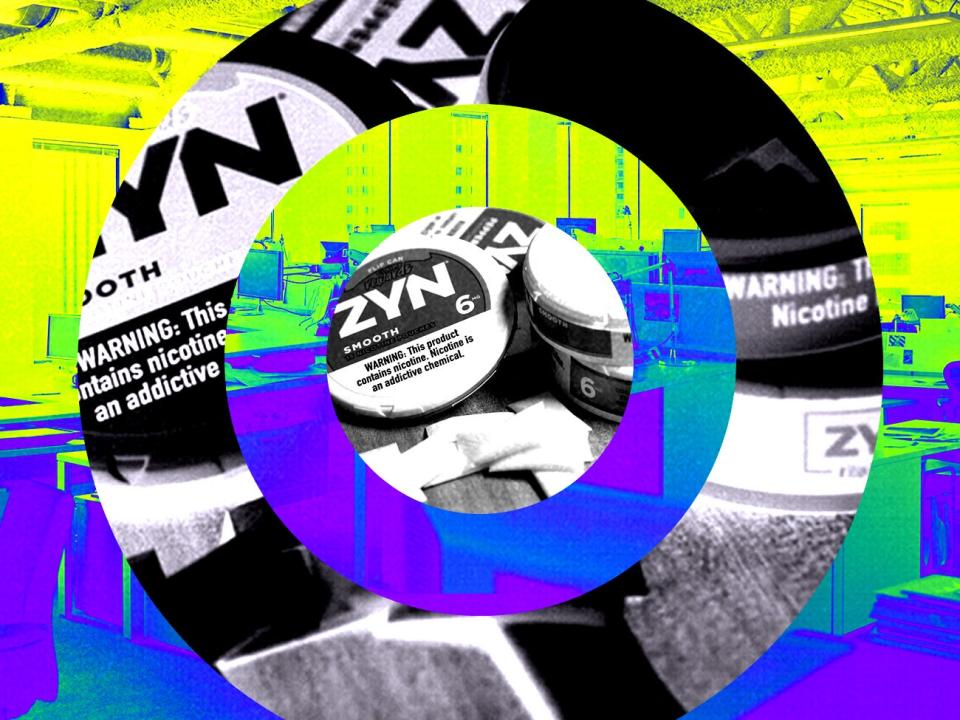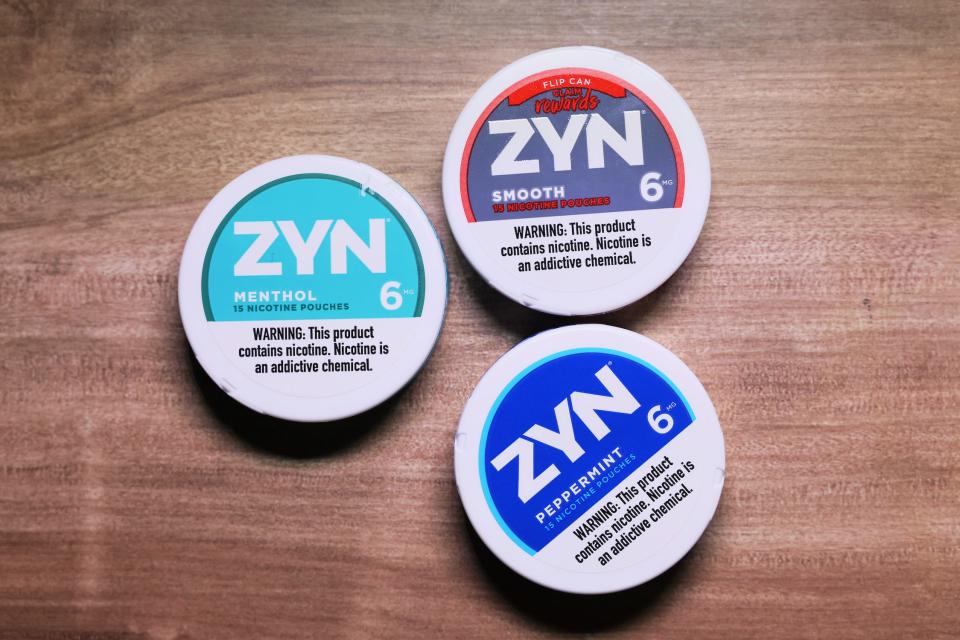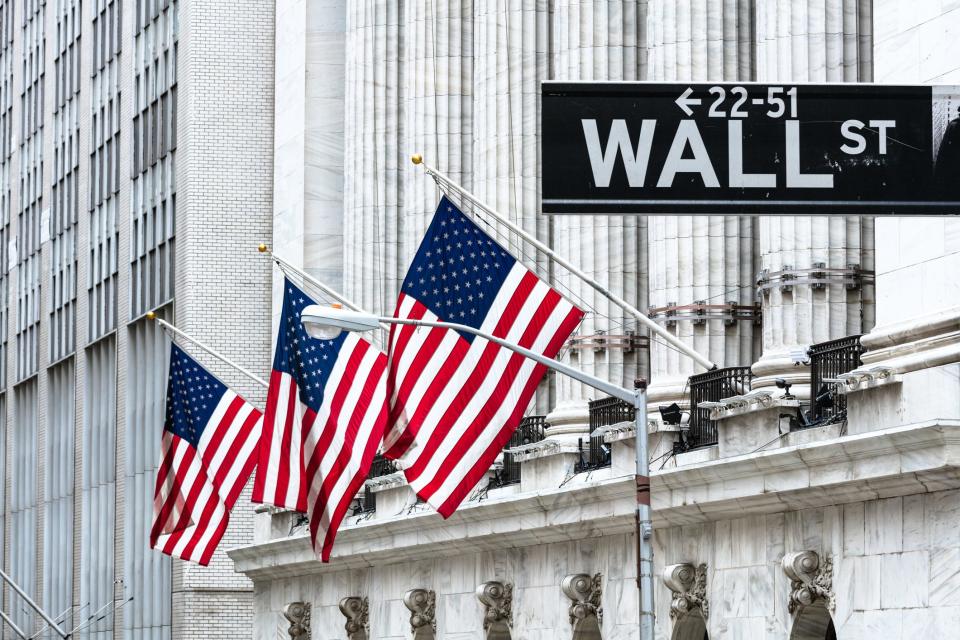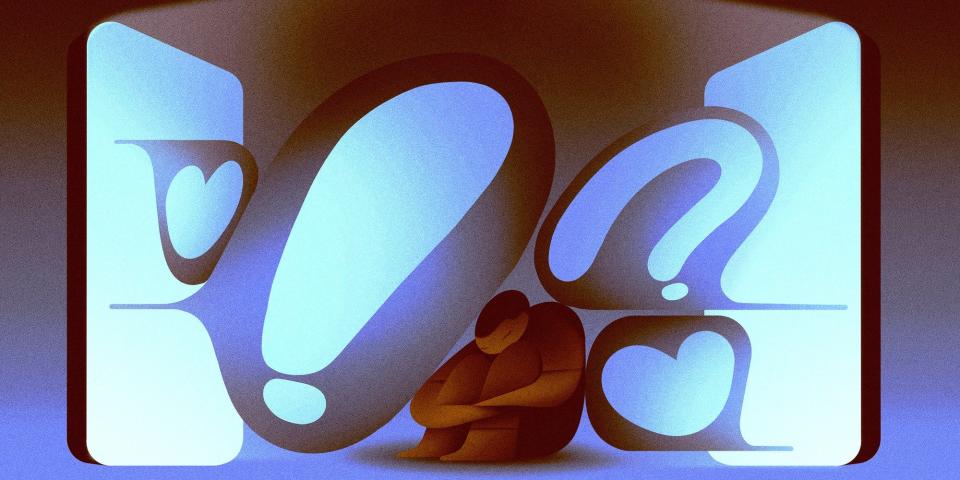Why Zyn nicotine pouches are all the rage among workers looking for a boost

This post originally appeared in the Insider Today newsletter.
You can sign up for Business Insider's daily newsletter here.
Almost Friday! Death. Taxes. Costco's $1.50 hot dog deal. The bargain meal has been around for nearly 40 years, with Costco's founder threatening to kill someone who suggested raising the price. But now it seems the combo meal might not be around forever.
In today's big story, we're looking at why Zyn nicotine pouches are becoming the go-to alternative for workers looking for a boost.
What's on deck:
Markets: The stocks no one can agree on might be your best bet.
Tech: How TikTok employees are feeling as a potential US ban looms.
Business: When the push to land your dream job ultimately becomes a nightmare.
But first, a Zyn a day keeps the cigarettes at bay.
If this was forwarded to you, sign up here.
The big story
Zyn for the win

Forget cigarettes or a cup of coffee. Some workers find all the inspiration they need in a tiny pouch that fits inside their lips.
Zyn, a brand of nicotine pouch, has quickly gained a loyal following among some workers looking for a boost during the day.
Its users often view it as a healthier alternative to nicotine products they'd previously used, like cigarettes, chewing tobacco, and vapes, Business Insider's Sarah Jackson and Tim Paradis write.
And they aren't necessarily wrong. One expert told Sarah and Tim a nicotine pouch is a "pretty clean product," but also acknowledged it's still early days.
While Zyn has been available in the US for a decade, it's really exploded over the past year. There was a 62% year-over-year bump in the amount of flavored nicotine pouches shipped in the US in 2023.
But what's more interesting is how concentrated it is among certain groups. Wall Street traders and Republican lawmakers and their aides are among the product's biggest fans.
That's not entirely surprising considering the pressure and stress in those jobs, with Zyn being viewed as a way to help. Of course, it also has other uses — like socializing with people at kids' birthday parties, one person told Sarah and Tim.

Zyn, like any other nicotine product, raises addiction concerns.
One Zyn user told Sarah and Tim he'll typically go through a little over a can, which has 15 pouches, each workday.
As someone with friends who know their way around a dip can, I did some research. When I asked them about their Zyn usage, the responses weren't what I expected.
One friend was using Copenhagen, a smokeless tobacco, to kick his Zyn habit. He said the nicotine pouches were too accessible and gave him migraines.
Another had used Zyn to quit his tobacco usage but ultimately found Zyns to be a harder vice to give up, something echoed by the others.
A third was using Zyn to quit vaping, but was already finding it addictive and was contemplating going back to cigarettes.
Such a small sample size isn't meant to illustrate everyone's experience or suggest that Zyns are ultimately bad. But it goes to show the potential risks of trading one addiction for another.
3 things in markets

Controversial stocks can equal concrete returns. Stocks that analysts can't seem to agree on historically perform better than ones that are consensus picks, be it good or bad, according to a UBS report. Electronic Arts, Verizon, and Ford are among 30 stocks that Wall Street is split on.
Reading the tea leaves on what recent Fed comments mean for rate cuts. The market thinks rate cuts are coming in June, but there are no guarantees. Here's a collection of comments from central bankers since their last meeting that could provide some clues.
Get ready for a massive crash, Mark Spitznagel says. The "Black Swan" fund manager told BI that he expects the current market euphoria to last a little longer before stocks suffer their worst collapse since 1929. Spitznagel has been warning about the bursting of a credit bubble since last year.
3 things in tech

A TikTok ban just got one step closer. The House of Representatives passed a bill effectively "banning" TikTok in the US, but there's no guarantee the bill will survive a Senate vote. And while TikTok appears to be preparing for a legal battle in the event of a ban, some employees said it's still "business as usual."
Angela Chao's death reveals Tesla's long-standing reverse gear issues. Chao drowned last month after accidentally backing her Tesla into a pond. For years before her death, Tesla owners had raised concerns about design flaws and seeming malfunctions that caused them to accidentally drive in reverse.
The sky's the limit for Nvidia, according to Bank of America. Analysts said on Wednesday that the chipmaker still looks undervalued at its $2.3 trillion valuation, flagging the "AI Woodstock" event it's hosting next week as one catalyst that could drive shares even higher. Wharton professor Jeremy Siegel is even more bullish.
3 things in business

The cost of ambition. One man's ambition helped him land a dream job, start a successful newsletter, and become an Oxford fellow. But he said it ultimately took a destructive turn, affecting his mental health.
Welcome to the age of "flash fads." First it was Stanley cups. Now it's Trader Joe's tote bags. Americans are suddenly obsessed with mundane status symbols — and it's an example of just how fast today's consumer fads can come and go.
Airlines are turning on Boeing. The planemaker's well-publicized troubles are disrupting airlines' plans to grow capacity, with its 737 Max 10 and Max 7 jets yet to be certified by regulators. "We all need Boeing to be better," Southwest CEO Bob Jordan reportedly said.
In other news
Russia's grand railway plan to get around Western sanctions is about to get even bigger.
Healthcare deals are picking up as VCs finally reopen their wallets. Here's what they are betting on.
Sam Altman said he texted Elon Musk after the billionaire sued him.
This guy is serious about crypto, but his joke character has gone viral.
What's happening today
Today's earnings: Adobe is reporting.
The Senate HELP subcommittee is holding a hearing on 32-hour work weeks.
The Insider Today team: Dan DeFrancesco, deputy editor and anchor, in New York. Hallam Bullock, editor, in London. Jordan Parker Erb, editor, in New York. George Glover, reporter, in London.
Read the original article on Business Insider


